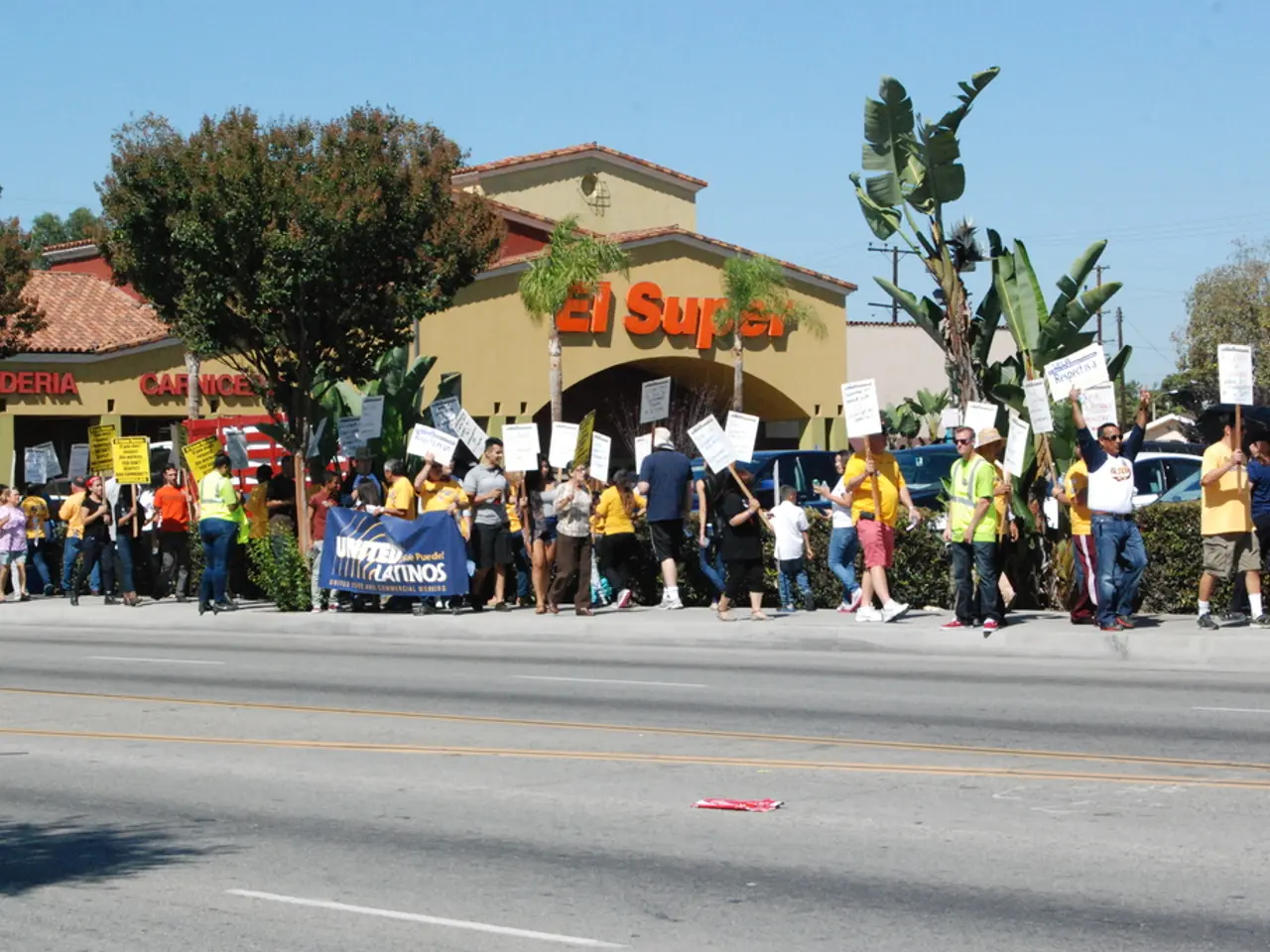**"Battle Royale" with the Federal Reserve: Trump rants against Powell while market dollars tremble
Trump publicly criticizes Federal Reserve Chair Jerome Powell in a harsh manner, attacking his monetary policy decisions.
The White House is ramping up pressure on the Federal Reserve to slash interest rates, but Chairman Jerome Powell remains unfazed in the face of Trump's constant criticism. The president has grown increasingly frustrated with the central bank, lashing out at Powell with names like "stupid" and "idiot."
Trump is calling for a drastic reduction in interest rates, hoping to save the U.S. billions of dollars a year. The current rates, sitting at around 4.25 to 4.5 percent, are straining the federal government's debt servicing costs. The Fed, however, opted to keep rates steady during their most recent meeting this week.
To Fire or Not to Fire? Fathom the Financial Chaos
Though Trump's verbal assaults on Powell have become old news, his latest post hints that he may be reconsidering the possibility of dismissing him. In early May, he stated that he would not entertain the notion. This time around, Trump suggested that Powell's term will be ending soon. He has around a year left before he steps down.
The idea of Trump actually firing Powell, who was originally appointed during Trump's first term, raises several legal and financial questions. Most analysts agree that a firing without just cause would be unconstitutional and may result in turmoil within financial markets.
Rattling the Cage: Legal Consequences of Overstepping Bounds
The Federal Reserve Chair is shielded by federal law and Supreme Court precedent from being fired without specific misconduct. Being a "uniquely structured, quasi-private entity," the Fed is protected from political interference1. Any attempt by Trump to dismiss Powell would likely lead to immediate legal challenges, delaying or complicating the process. Courts have emphasized the significance of maintaining the Fed's leadership stability to ensure minimal impact on the financial system2.
Market Mayhem: A Combustible Cocktail of Politics and Policies
In the event of a politically-driven firing, markets could face increased volatility, undermining investor confidence and potentially raising borrowing costs3. The Fed's independence is crucial for controlling inflation and spurring economic growth. Politicizing monetary policy could lead to harmful decisions and long-term economic repercussions3. Furthermore, there is concern that a move to dismiss Powell may trigger a financial crisis by destabilizing monetary policy frameworks and damaging the central bank's impartiality3.
Source: ntv.de, ino/dpa
- Fed
- Politics and Central Banking
- Donald Trump
- Jerome Powell
- Interest rates
- Amidst Trump's calls for lower interest rates and verbal attacks on Jerome Powell, a debate around the boundary between politics and monetary policy has arisen, with analysts highlighting the potential consequences of politicizing the Federal Reserve's policy-and-legislation and employment policy.
- The threat of President Trump firing Chair Powell amidst war-and-conflicts within their relationship raises legal-and-financial concerns, as many experts agree that such a move without just-cause would be unconstitutional and consequential for both general-news and crime-and-justice, potentially causing increased volatility and longer term economic repercussions.
- In light of Trump's attempts to pressure the Federal Reserve to align with his employment policy and political interests, the community policy surrounding the independence and integration of Fed operations within the broader policy-and-legislation landscape is under discussion, with concerns that political interference could destabilize monetary policy frameworks and lead to harmful, long-term economic consequences.






